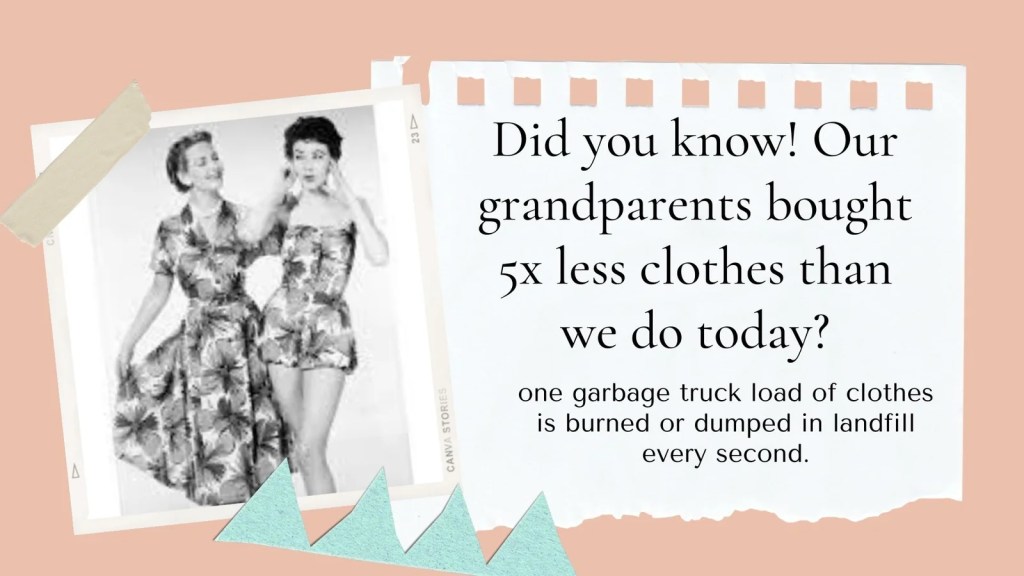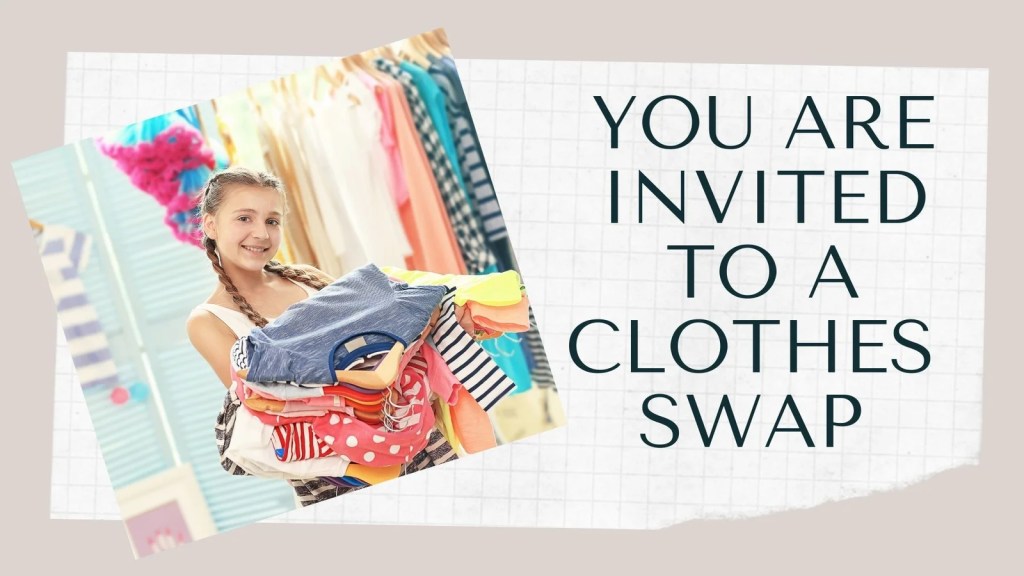In 2016 I worked in a huge charity shop in Spain. We had 800 square meters of open space to fill, much of it taken up with large pieces of furniture that nobody really wanted. People would leave their donations on the step of our store and every morning it would get sorted. Most would be clothing.
Unfortunately, not much of it was sellable so I would give old clothing away to be used for rags. We sold a lot of clothing but not as much as was coming in. At one point we had nearly 300 pairs of jeans.
I came up with an idea! We would sell a carrier bag for 5 Euros and people were allowed to squash in as many clothing items as they could fit inside. This was a success so we did this as a promotion once a week which helped us get rid of more items however it was nowhere near enough.
I did wonder if we could start running some re-style and recycle classes but I left the store before we put that idea into action. I believe the owner bundled it all up and took it to a recycle plant somewhere. It is now probably littering up a landfill site in Africa amongst all the other discarded clothes from the west.
According to a study published by menswear brand Labfresh, Spain produces a lot of textile waste per capita with Belgium sitting at the top of the list. The UK is the fourth-largest producer of textile waste but has the third-largest clothing industry in Europe. Italy alone has to dispose of 7.7 kilos of textile waste per person that equals nearly 465,925 tonnes every year. This is a lot of clothing to find a place for and from just one country in Europe.
The answer is to buy less, wear longer, and recycle what you can.
20 years ago I would never have bought clothes second-hand. As the eldest child, I was used to having new clothes. It was my sister who got the hand-me-downs. Nothing is a hand me down. Not any more. It is now a necessity.
Changing mindsets for concious consumerism.
Thankfully I now see the bigger picture and I have left the mad mindlessness of throw-away consumerism. Cheap inferior clothing is produced by a market demand fuelled from cheap mindsets. Something that falls apart sooner and is difficult to dispose of will never be a bargain.
Our children do not need to grow up with a mountain of tee shirts they will grow out of before they have had time to wear them, Just because they were on sale in Primark for two euros. This is mindless consumerism.
There are women working in India for 65$ per month, working very long hours and not getting to see their families. Just for you to have cheap clothes you will throw away in three months. Would it not be better to have a garment that lasted twice as long because there was time to improve the quality? We could pay the industry more and labour costs could improve. Why does this not make any sense? It will not – until we address our greed by wanting more for our money. It is time to wake up and realise you are actually getting less by wanting more.

Wear longer.
Look after your clothes, maybe you will if you have paid more for them. If a button falls off or a zip breaks, learn to repair them. Re-dye faded clothes if possible. Don’t wash them for the sake of it. Hang and fold properly and follow the instructions on washing labels.
Recycle.
Before you dump your clothes at a charity shop think carefully. Can you sell them online? what about giving them to friends? Other ways you can easily recycle – for instance, can you turn that pair of jeans into a pair of shorts and give them a longer life. I have met people turning old clothes into new clothes by re-designing them. If you are good with a sewing machine, there is no excuse. What about making collages and producing art? Start a recycling club.
Clothes Swapping.

Run a clothes-swapping event, this is a fantastic way to bring friends together. You could do this at home or in a community facility. Offer a glass of wine and a piece of cake as you swap clothes for free. Nobody complains about paying an entrance fee, you could use the money as a way to support a charity. Please encourage your friends to bring a number of items they no longer want and make sure they are freshly laundered. At the end of the event, anything that gets left over can then go to the charity shop.
Daadi Organics will be offering bags to people who host clothes-swapping parties. Money raised will go to help textile workers in India. We are presently supporting a small school in a Jaipur slum by empowering women and their children through education. Read more here about how you can donate to help keep these kids in school. https://www.buymeacoffee.com/laurenstaton.

A Little can go a Long Long Way.
There is a crisis within the fashion industry. Fast fashion is the 2nd largest polluter on our planet. The industry is working hard to find better ways and to bring solutions. Together, however small our efforts may seem, we can make a difference if we all change our mindsets. To provide a better environment for our children and their future.









